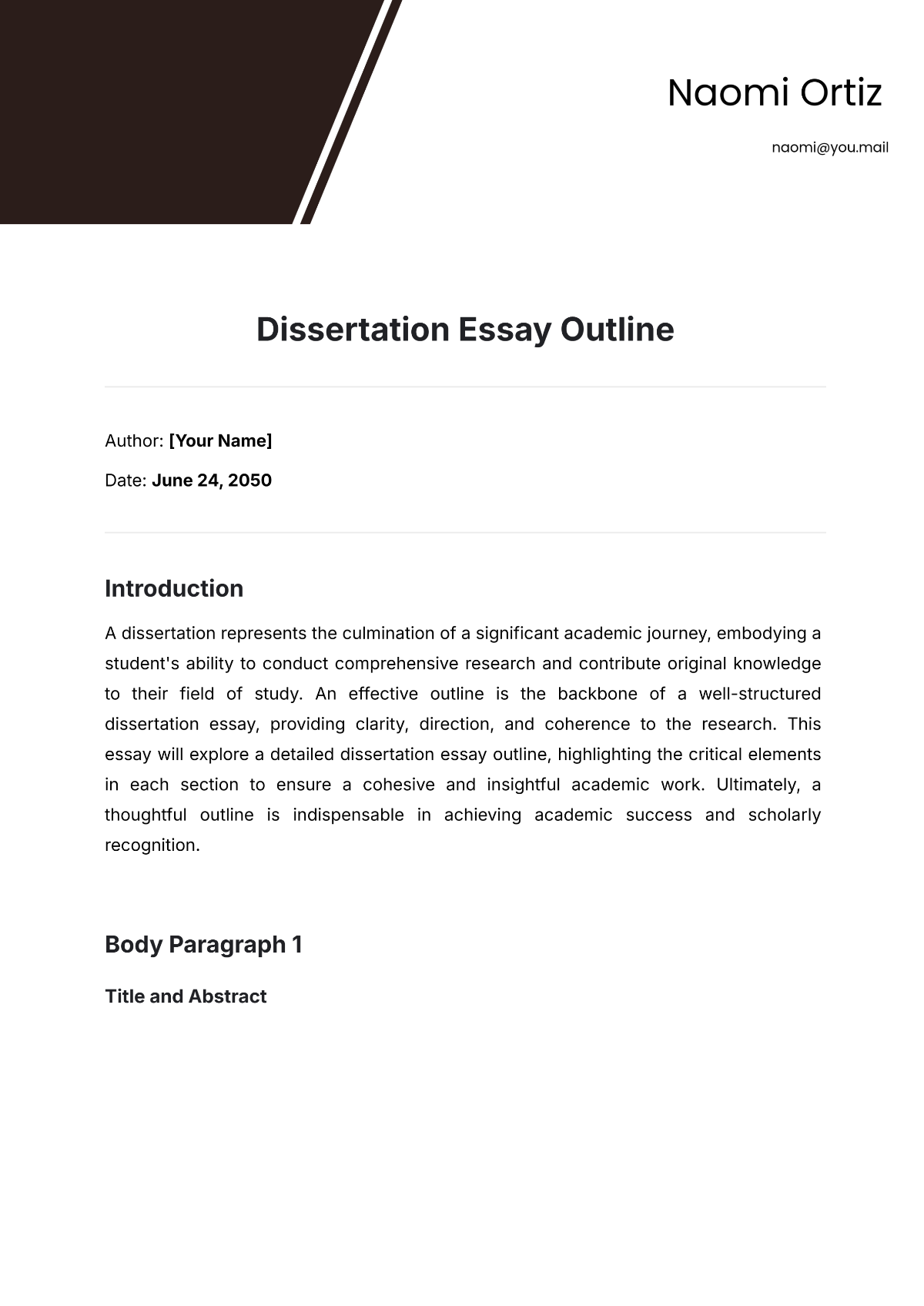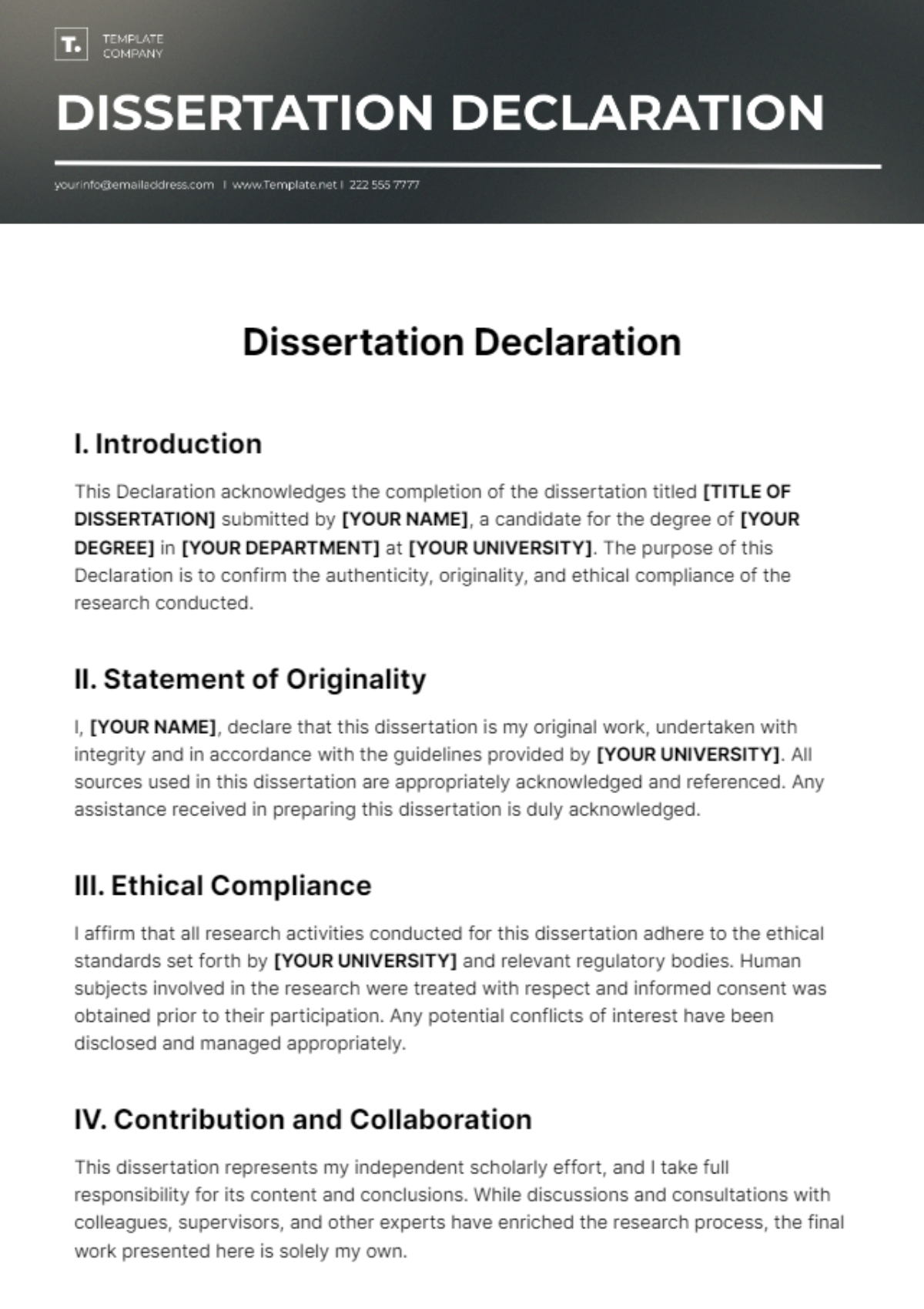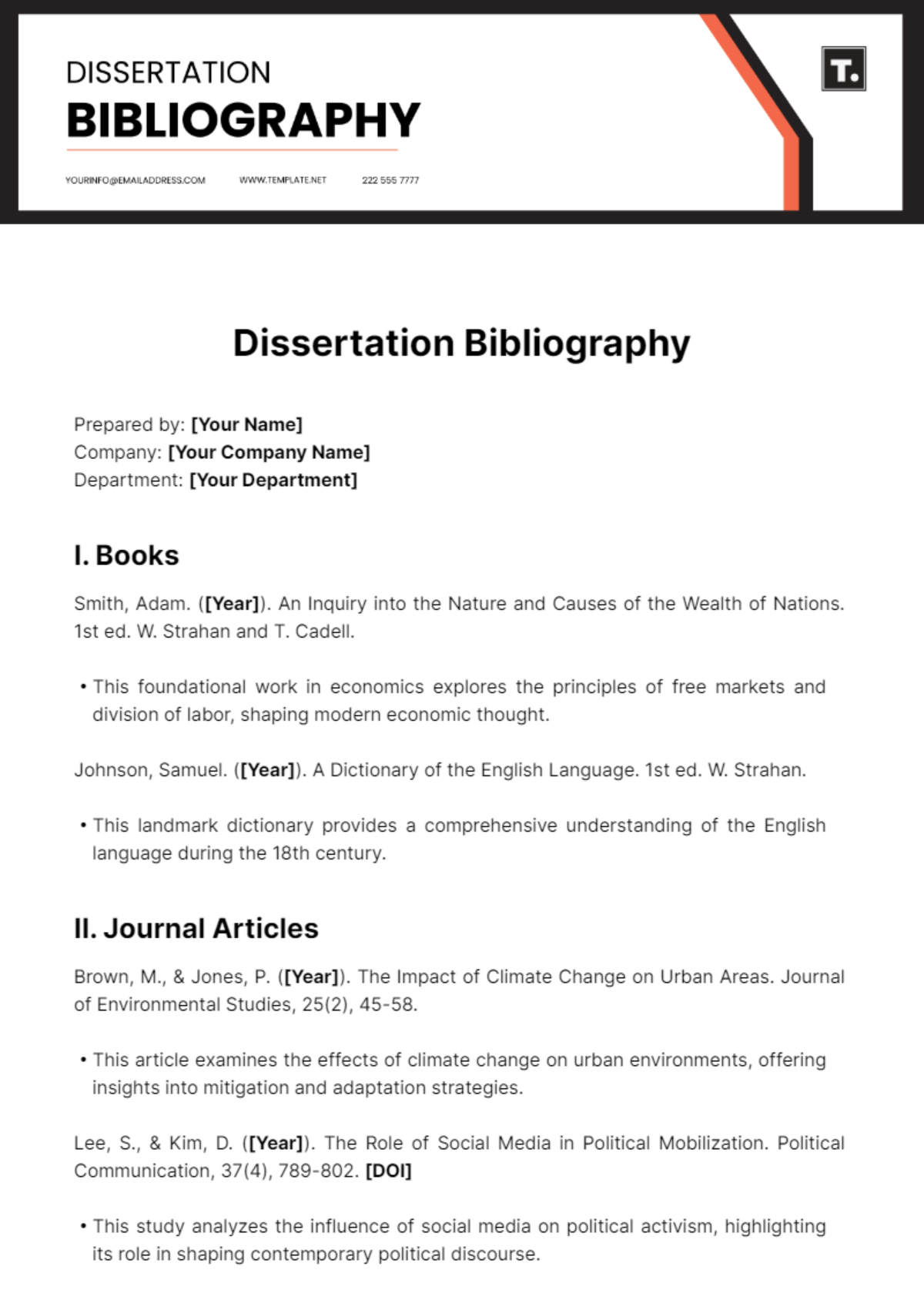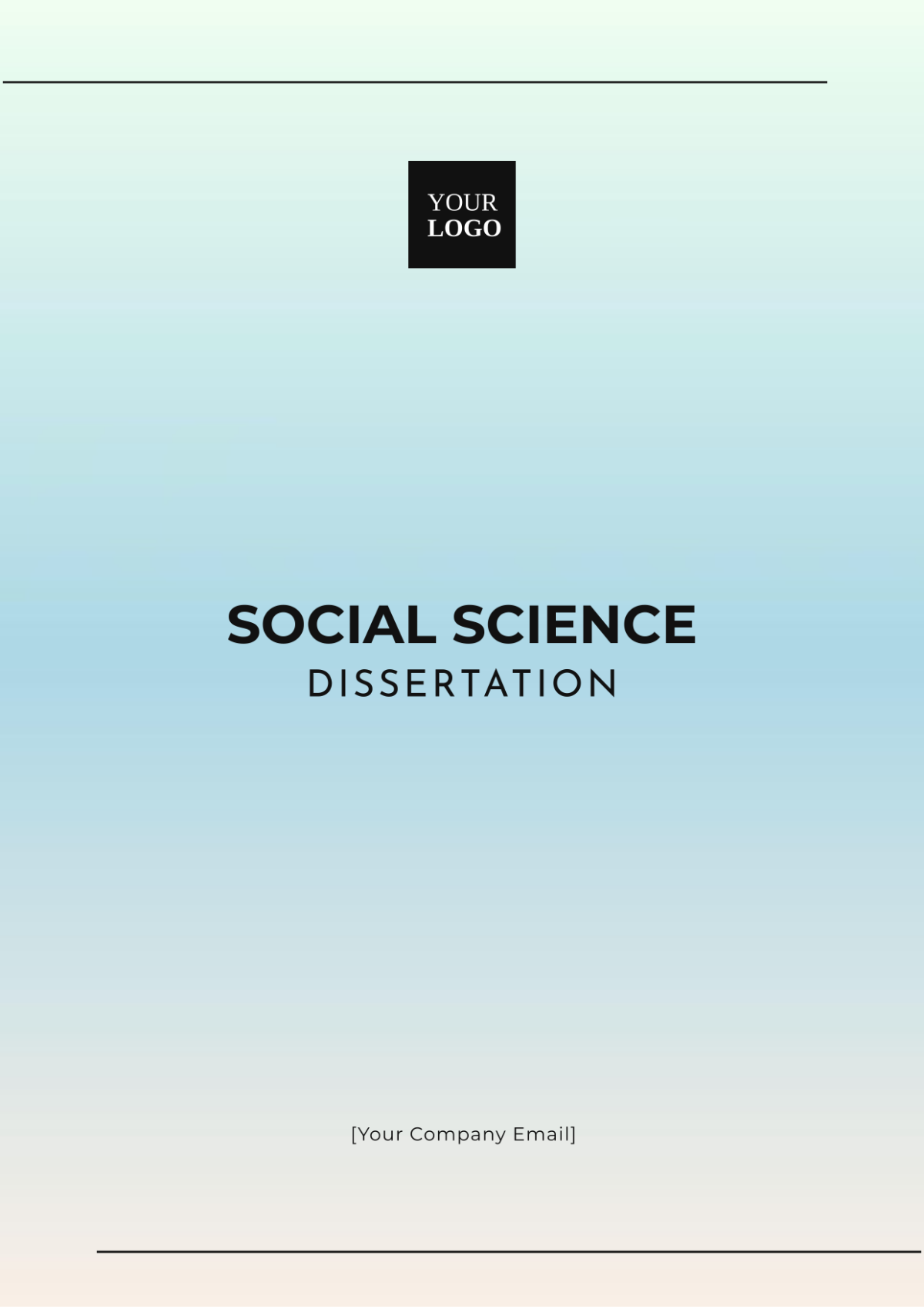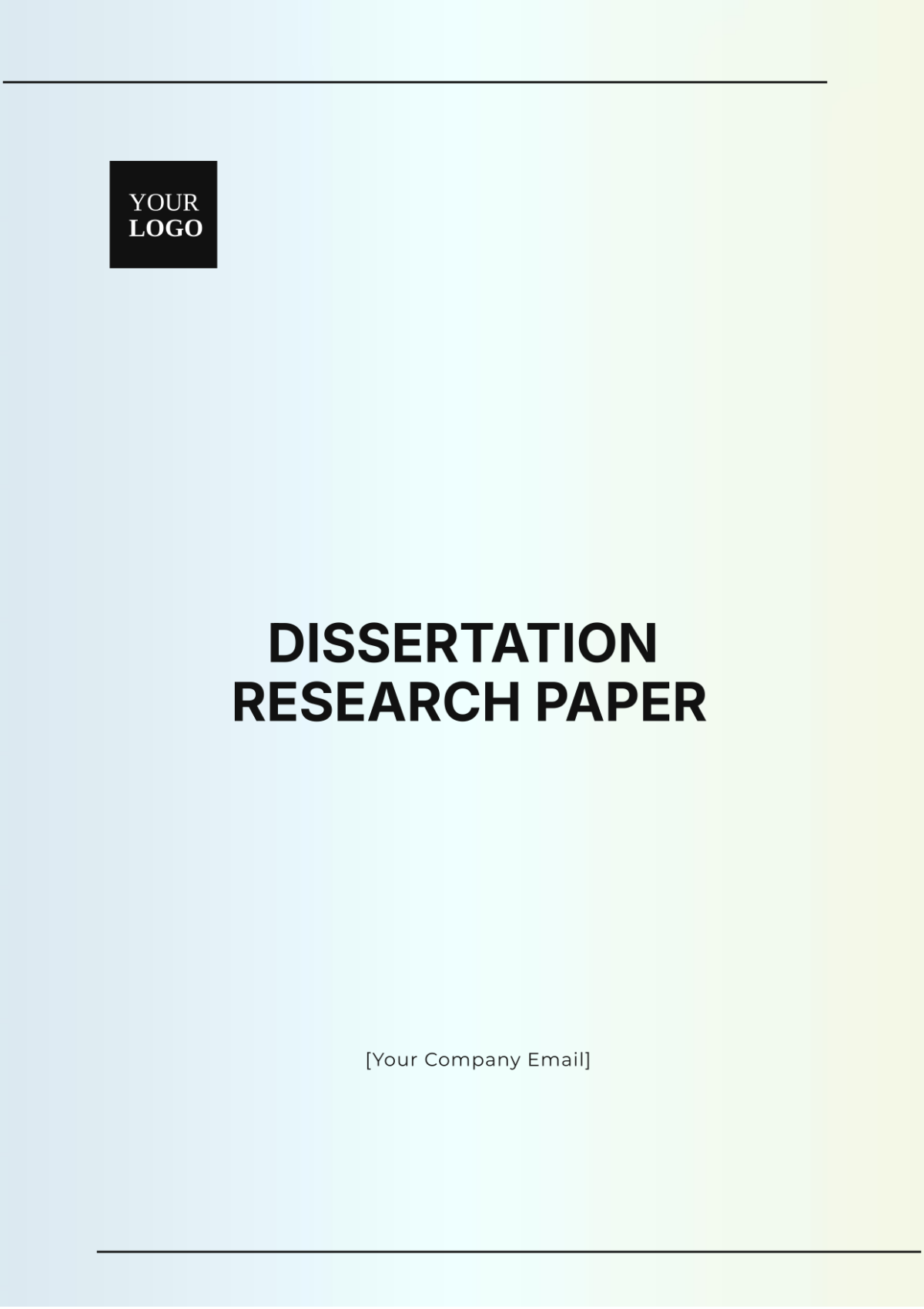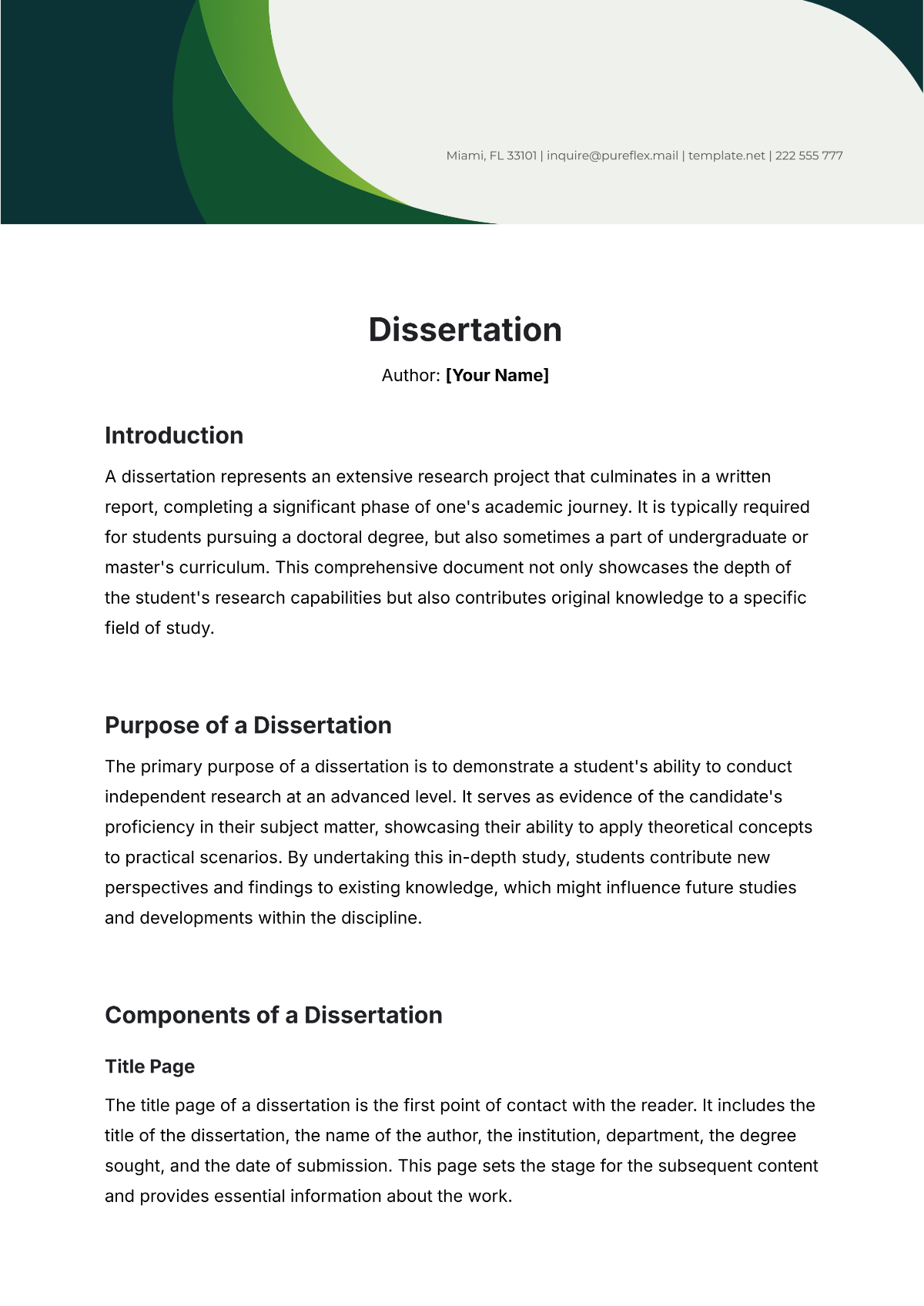PhD Dissertation
Prepared By: [Your Name]
Abstract
This dissertation examines the multifaceted impact of Artificial Intelligence (AI) on modern society, focusing on technological advancements, ethical questions, and economic implications. It provides a comprehensive analysis of how AI is reshaping various sectors, including healthcare, finance, transportation, and education. By evaluating current trends and future possibilities, this work aims to offer valuable insights into the transformative effects of AI and the challenges it presents.
I. Introduction
The advent of Artificial Intelligence represents one of the most significant technological shifts of the 21st century. As societies become increasingly integrated with advanced technologies, understanding the implications of AI is crucial. This dissertation explores the transformative effects of AI on diverse aspects of modern life, aiming to dissect its benefits, challenges, and future trajectory.
II. Background
Artificial Intelligence has progressed from early machine learning algorithms to sophisticated systems capable of performing complex, human-like tasks. With rapid advancements in data processing and computational power, AI applications have become integral across various domains. Key areas of impact include healthcare, finance, transportation, and education.
III. Research Questions
What are the primary domains where AI has made a significant impact?
How has AI influenced global employment patterns?
What ethical challenges are associated with the deployment of AI technologies?
What future trends in AI are anticipated, and how might they shape society?
IV. Literature Review
The literature on AI spans from theoretical foundations to contemporary applications. This section reviews seminal works and theoretical frameworks that have shaped our understanding of AI's societal impact.
Early Foundations: Theories by pioneers like Alan Turing and John McCarthy laid the groundwork for AI research.
Machine Learning Era: The 1990s and early 2000s saw the rise of machine learning, enhancing AI's problem-solving capabilities.
Deep Learning and Big Data: Recent advancements in deep learning and the availability of big data have expanded AI's applications and introduced new ethical concerns.
V. Technological Advancements
1950s-1980s: Foundations of AI
Key Developments: Early algorithms, symbolic AI.
Impact: Basic understanding with limited practical applications.
1990s-2000s: Machine Learning Era
Key Developments: Emergence of machine learning techniques, neural networks.
Impact: Increased efficiency and capability in problem-solving.
2010s-Present: Deep Learning and Big Data
Key Developments: Advanced deep learning algorithms, integration of big data.
Impact: Broadened applications and heightened ethical concerns regarding privacy and bias.
VI. Economic Implications
The integration of AI into the economy presents both opportunities and challenges:
Job Market Dynamics:
Shifts in employment patterns as automation and AI technologies transform various industries.
Case Study: The impact of AI on manufacturing and service sectors.
Economic Growth:
AI's contribution to GDP through increased productivity and innovation.
Analysis of sectors experiencing significant growth due to AI investments.
Investment Patterns:
Trends in venture capital funding for AI startups.
Case Study: Notable AI startups and their market impact.
VII. Methodology
A mixed-method approach was employed to analyze AI's impact:
Data Collection:
Sources: Academic journals, industry reports, government publications, expert interviews, surveys, and case studies.
Tools: SPSS and R for quantitative analysis; thematic coding for qualitative data.
Data Analysis:
Statistical tools for quantitative data.
Pattern recognition and thematic coding for qualitative insights.
VIII. Findings and Discussion
The study reveals significant impacts of AI across various domains:
Healthcare:
Predictive Analytics: Early detection of diseases through AI algorithms.
Personalized Medicine: Customized treatment plans facilitated by AI tools.
Robotic Surgery: Enhanced precision with systems like the Da Vinci Surgical System.
Finance:
Fraud Detection: AI systems for identifying suspicious activities.
Algorithmic Trading: High-frequency trading driven by AI technologies.
Customer Service: Improved interaction and service through AI chatbots.
IX. Ethical Considerations
AI deployment raises several ethical issues:
Data Privacy: Ensuring the protection of personal data.
Algorithmic Bias: Addressing and mitigating biases in AI systems.
Job Displacement: Balancing technological advancements with job security and equitable employment opportunities.
X. Conclusion
Artificial Intelligence holds the potential to drive substantial advancements across multiple sectors. However, it is essential to address the ethical implications and proactively manage challenges to fully harness AI's benefits. Future research should continue exploring these issues and develop strategies to mitigate negative impacts while promoting positive societal outcomes.
